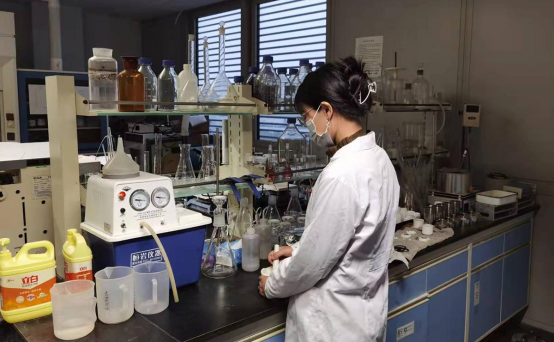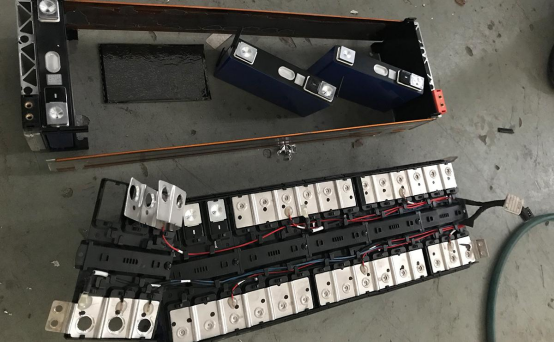Researchers at Tsinghua have demonstrated a greener way of recovering lithium from batteries to pave the way for a more sustainable electric vehicle market.
Electric vehicles will be instrumental to reduce carbon dioxide emissions in order to reach carbon neutrality. With more than 3 million electric vehicles sold worldwide in 2020, the question of how to recycle the lithium-ion batteries that power them is pressing, in particular, because lithium mining requires the use of large amounts of chemicals.
For green technologies such as electric vehicles to be sustainable, it’s important to quickly identify environmentally friendly ways to recover lithium from spent batteries. Now, Jinhui Li and his team, writing in Green Chemistry, present a fast and sustainable process for the rapid extraction of lithium from the cathode of lithium iron phosphate batteries.

Jinhui Li and his team at the School of Environment at Tsinghua University seek to use chemistry to create more sustainable battery consumption systems.
At present, there are two main types of lithium-ion batteries for electric vehicles: ternary nickel-cobalt manganese (LiNixCoyMnzO2) and lithium iron phosphate (LiFePO4) batteries.
“In May 2021, the monthly output of lithium iron phosphate batteries in China exceeded that of ternary batteries for the first time,” observes Li. “This means that the market share occupied by lithium iron phosphate batteries will continue to increase and become the mainstream in the future, and that the development of a suitable recycling technology is urgently needed.”
Mechanochemical extraction
Because spent LiFePO4 batteries do not contain precious metals, the economic drive for material recovery is weak. Lithium can currently be recovered from such batteries using technologies based on hydrometallurgy, which uses aqueous solutions to recovery metals from the spent material, but the process is inefficient and involves the use of strong acid reagents, which are cause for serious environmental concerns.
In the new study, the researchers introduce a more environmentally friendly process based on a mechanochemical method, which uses mechanical energy as a driving force to induce a solid-phase chemical reaction to selectively and quickly extract lithium without the need to use acids or the generation of waste water.
“Mechanochemistry is a widely used green technology,” explains Li. “Compared with direct hydrometallurgy, the advantages of mechanochemistry are that the reaction space is closed, reducing environmental pollution; a mechanical force accelerates the chemical reaction, which is 3-4 times faster; and, finally, the use and waste of water are reduced.”

Demand for lithium iron phosphate batteries (pictured) in electric vehicles is growing, and so too is the need for recycling technologies.
Practical process
In practice, the researchers put the spent cathode lithium iron phosphate material and a solid-phase oxidant, sodium persulfate, into a ball mill tank, in which the mechanical force generated by the collision of the grinding balls accelerates the oxidation reaction. The iron in lithium iron phosphate is oxidized, and the lithium is released and converted into lithium sulfate. The lithium sulfate is then precipitated and recovered in the form of lithium phosphate.
Using this method, 99.7% of the lithium in LiFePO4 cathodes can be recovered. And the reaction is fast –as quick at five minutes – highly selective, avoids the use of acids and bases, and results in three new chemical products: iron phosphate, sodium sulfate and lithium phosphate.
“We are still trying more solid oxidants and other types of co-milling solid-phase reaction reagents,” concludes Li. “We look forward to finding a solid-phase oxidant with a faster reaction rate, or to obtaining a higher value-added lithium product, so as to further broaden the profit margin of lithium recovery.”

Among other things, Professor Jinhui Li is responsible for the operation of Asia-Pacific Regional Centre for Hazardous Waste Management Training and Technology Transfer, which is a Basel Convention Regional Centre hosted by Tsinghua University and supervised by the United Nations Environment Programme. The Basel Convention is an international treaty signed by almost 200 states and designed to reduce the movements of hazardous waste between nations, and specifically to prevent transfer of hazardous waste from developed to less developed countries.
Reference
Liu, K. et al. Selective extraction of lithium from a spent lithium iron phosphate battery by mechanochemical solid-phase oxidation. Green Chem. 23, 1344 (2021)
Doi: 10.1039/D0GC03683H